The programme is only conducted in Lithuanian language. Entry requirements for this particular programme can be found in the programme description provided in Lithuanian language.
in Lithuanian
The Language Technologies and Translation programme prepares future language professionals for roles in which they will not only translate, but also apply translation and language technologies. You will learn to use AI-based language processing and translation tools, work with corpora, adopt language and translation project practices, and critically evaluate technology-generated linguistic output. You will also have the opportunity to strengthen your language and intercultural communication skills, and study a second foreign language. The skills acquired on this programme will open up career opportunities in international companies, technology firms and freelance roles.
The name of this study programme will be changed from “Translation of Technical Texts” to “Language Technologies and Translation.”

The study programme covers the application of artificial intelligence, large language models (LLMs), language technologies, and translation tools, the basics of Python programming, and translation project management. Continuous professional development of lecturers ensures the highest standard of teaching. Specialists from the European Language Industry Association (ELIA) share their expertise here.

During your studies, you will work with real cases and practical projects in collaboration with companies, applying artificial intelligence, large language models (LLMs), modern translation technologies, and translation project management practices. You will work with industry-standard translation, project management, and text-analysis software such as Trados, MemoQ, Plunet, Sketch Engine, and more, and you will gain foundational Python programming skills essential for understanding and applying language technologies
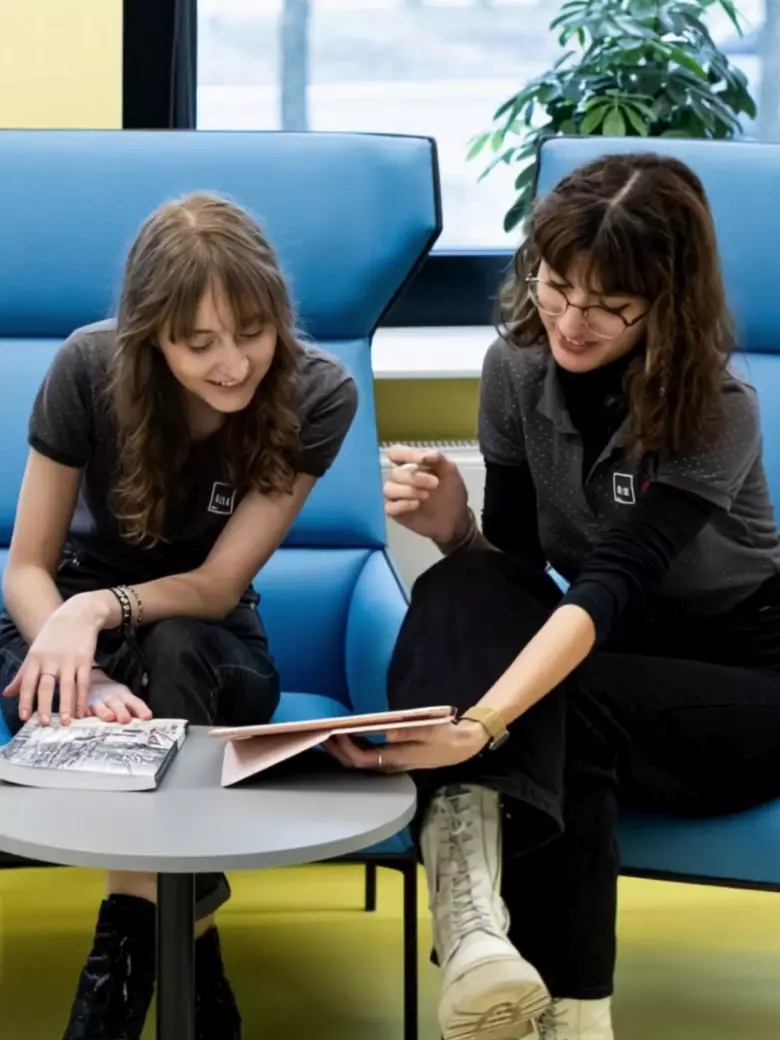
The infrastructure, adapted to the advanced didactics, includes interpretation, translation and eye-tracking laboratories, translation software and contemporary equipment to ensure an efficient learning process.
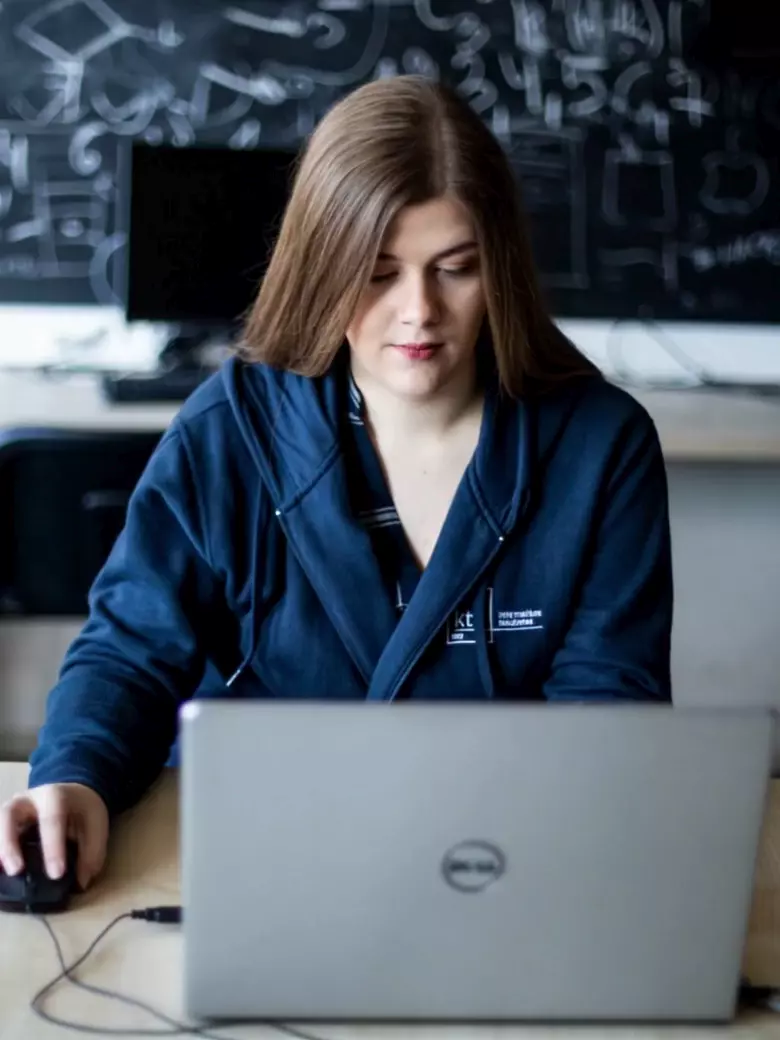
Choose to study a second language or create a personalised set of modules to deepen your existing competences or acquire new ones in areas such as law, leadership, entrepreneurship, and more.
It’s much more than just translation: build your career in language technology application and translation, collaborate with the language services industry and implement modern language and translation solutions. This programme provides you with the knowledge and skills needed for translation, as well as for using AI-based language and translation technologies. Practical language study activities will prepare you for the dynamic job market and help you develop the skills needed to work with international companies.
Here are some of the careers you can pursue after your studies:
Working as a translator in companies that are developing high-value products and contributing to their operational efficiency.
They create clear, accessible and user-friendly content for digital platforms, apps and websites. They shape text to enhance the overall user experience, working closely with design and technology teams to deliver intuitive and effective solutions.
They work alongside specialists from various technology fields to improve and adapt large language models to meet the needs of the language industry.
| Module name | Credits | Method of organisation |
|---|
| Academic and Technical Communication in English (Level C1) | 6 | On-campus learning |
| Fundamentals of Linguistics and Translation Studiesi | 6 | On-campus learning |
| Informatics 1 | 6 | On-campus learning |
| Introduction to Language Technologies and Translation Studies | 6 | On-campus learning |
| Second Foreign Language Electives 2026 | 6 |
| Module name | Credits | Method of organisation |
|---|
| Analysis and Translation of Technical Text 1 (English) | 6 | On-campus learning |
| Logical System of Language | 6 | On-campus learning |
| Translation Technologies and Artificial Intelligence | 6 | On-campus learning |
| Second Foreign Language Electives 2026 | 6 |
| Media Philosophy | 6 | Blended learning |
| Sustainable Development | 6 | On-campus learning |
| Module name | Credits | Method of organisation |
|---|
| Analysis and Translation of Technical Text 2 (English) | 6 | On-campus learning |
| Introduction to Logic | 6 | On-campus learning |
| Language Ecology | 6 | On-campus learning |
| Technical Writing and User Experience | 6 | On-campus learning |
| Second Foreign Language Electives 2026 | 6 |
| Module name | Credits | Method of organisation |
|---|
| Analysis and Translation of Technical Text 3 (English) | 6 | On-campus learning |
| Discourse and Communication | 6 | Blended learning |
| Interpreting Laboratory | 6 | On-campus learning |
| Term Management Systems | 6 | On-campus learning |
| Second Foreign Language Electives 2026 | 6 |
| Module name | Credits | Method of organisation |
|---|
| Analysis and Translation of Technical Text 4 (English) | 6 | On-campus learning |
| Digital Translation and Language Project Management | 6 | On-campus learning |
| Language and Translation Research Methods | 6 | On-campus learning |
| Language Management in Multicultural Society | 3 | On-campus learning |
| Optional Subjects 2026 | 6 |
| Electives of Entrepreneurship Education 2026 | 6 | |
| Introduction to Law | 6 | On-campus learning |
| Module name | Credits | Method of organisation |
|---|
| Bachelor’s Degree Final Project | 15 | Distance learning |
| Professional Internship (translation) | 15 | Distance learning |
The programme is only conducted in Lithuanian language. Entry requirements for this particular programme can be found in the programme description provided in Lithuanian language.
in Lithuanian
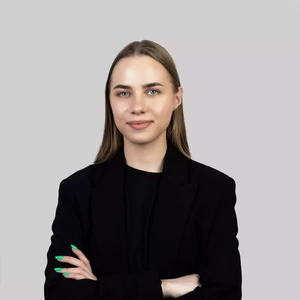
This study programme is based on practical sessions. The education and social-emotional skills acquired at university, such as critical thinking, problem-solving, courage and determination, develop and shape a young person in many ways and enable them to pursue the careers of their dreams.
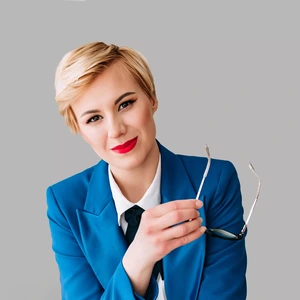
KTU technical translation studies are applicable to a wide range of fields and offer a lot of flexibility. For me, this education has opened up many opportunities – from translation to working in strategic companies such as the Ignalina Nuclear Power Plant. What I liked most was that the studies were not only about language, but also about technology, precision science and real industry.
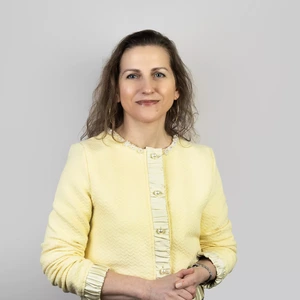
When hiring employees we prefer graduates from this particular study programme. Professionals who have been nurtured by this institution tend to stand out in terms of their proficiency in linguistic processes and forms of technology which are essential when it comes to meeting the needs of the global market. From the perspective of soft skills, I should mention motivation to work, a readiness to overcome challenges, and also critical thinking.
This programme is only available in Lithuanian and all teaching, coursework and examinations are conducted in this language.
Yes, translation is an attractive and flexible career because the present-day translation professional is more than just a translator. It is a professional who has successfully mastered translation technology and artificial intelligence. The advantage of this profession is not only the flexible working hours but also the possibility to work from anywhere in the world.
Yes, you can work as an English translator after graduating from the Language Technologies and Translation programme. But this programme also opens up other career paths. You can also translate from a second foreign language, which you will study from the first year. It gives you the knowledge and skills to learn translation strategies and work with specialist software. It’s the right career for anyone with an interest in languages, technology and international cooperation.
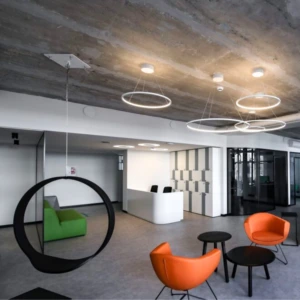
Talk to us, study with us:
K. Donelaičio St. 73, LT-44249 Kaunas
phone +370 679 44 555
email studijos@ktu.lt
Faculty of Social Sciences, Arts and Humanities
I Chamber
A. Mickevičiaus St. 37, LT- 44244 Kaunas
email shmmf@ktu.lt
 virtual tour
virtual tour